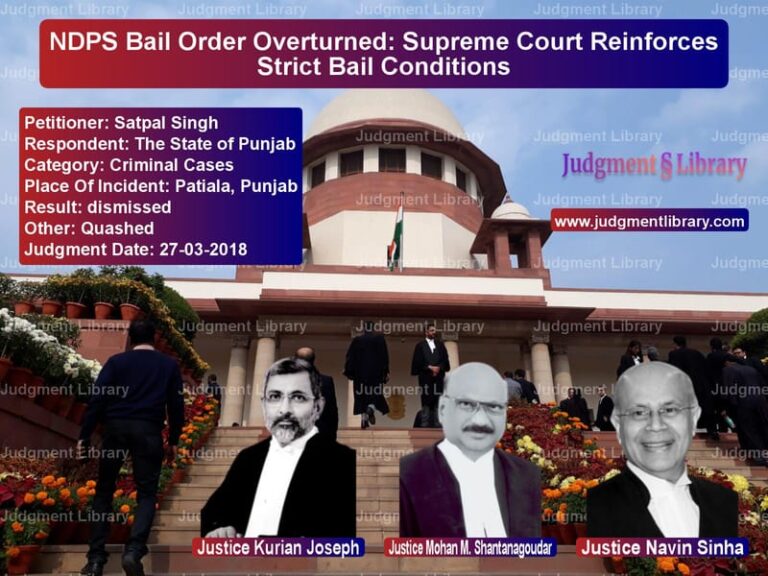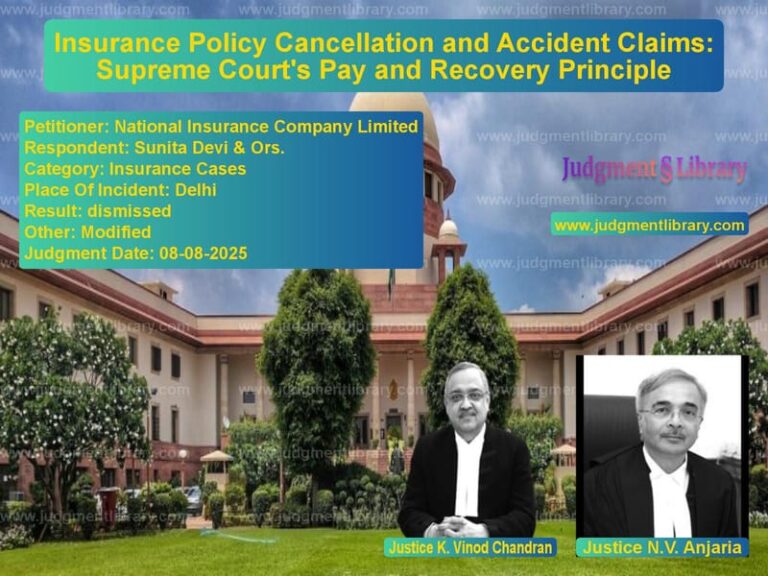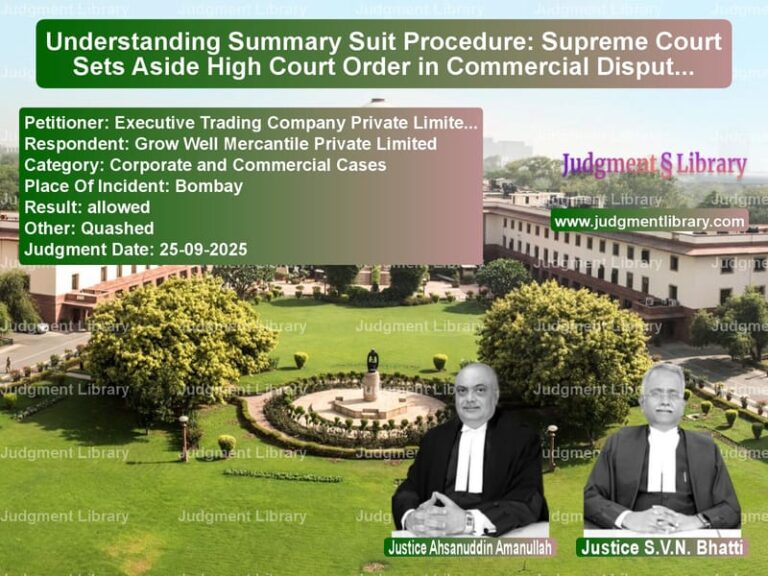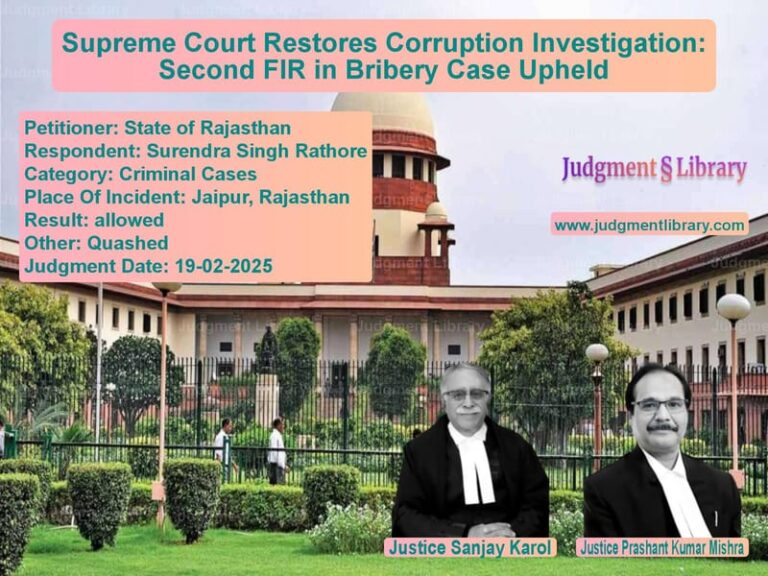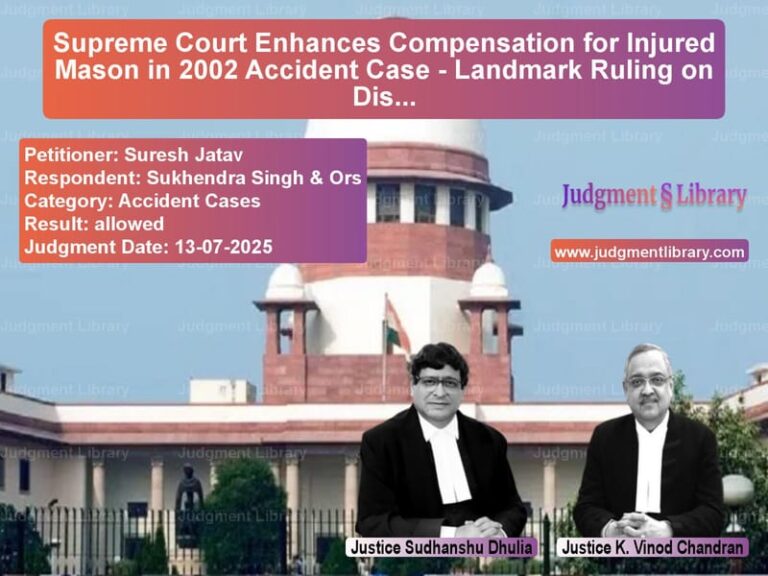Service Tax on Haj Pilgrimage Operators: Supreme Court Upholds Levy
The case of All India Haj Umrah Tour Organizer Association Mumbai vs. Union of India is a landmark judgment that deals with the liability of Haj Group Organizers (HGOs) and Private Tour Operators (PTOs) to pay service tax on services rendered to Haj pilgrims. The Supreme Court was called upon to decide whether these operators should be exempted from service tax under the Mega Exemption Notification and whether the differential treatment between Haj Committees and private tour operators violated Article 14 of the Constitution of India.
Background of the Case
Every year, thousands of Indian Muslims undertake the Haj pilgrimage either through the Haj Committee of India or through private tour operators known as HGOs. The Government of India has a bilateral agreement with the Kingdom of Saudi Arabia, under which a fixed number of pilgrims are allowed to travel. Of this quota, 70% is allocated to the Haj Committee, while the remaining 30% is allocated to HGOs. These HGOs provide a comprehensive travel package, including airfare, accommodation, transportation, and food.
The dispute arose after the government imposed service tax on services provided by HGOs, arguing that they were engaged in commercial activity. The petitioners contended that their services should be exempt under Paragraph 5(b) of the Mega Exemption Notification, which provides tax exemption for services rendered by way of conducting religious ceremonies.
Petitioner’s Arguments
The petitioners, represented by senior advocates, presented the following key arguments:
- Religious Nature of Services: The services provided by HGOs facilitate the performance of the religious Haj ceremony, which should qualify for exemption under Paragraph 5(b) of the Mega Exemption Notification.
- Burden of Tax on Pilgrims: Service tax is an indirect tax, meaning the financial burden ultimately falls on the Haj pilgrims, making their religious journey more expensive.
- Unfair Discrimination: The Haj Committee of India is exempt from service tax under Paragraph 5A, whereas private operators are taxed. Since both provide identical services, this amounts to discrimination under Article 14 of the Constitution.
- Extra-Territoriality: The petitioners argued that since the services are provided in Saudi Arabia, they should not be taxed under Indian law. However, this issue was left open by the Court.
Government’s Arguments
The government, represented by the Additional Solicitor General, opposed the petitions with the following key contentions:
- Commercial Nature of Services: HGOs operate as commercial entities, unlike the Haj Committee, which is a government-regulated body. Exemptions are granted only to government agencies facilitating religious pilgrimages.
- Tour Operators are Not Performing Religious Ceremonies: The exemption under Paragraph 5(b) applies only when a service provider conducts a religious ceremony. HGOs merely facilitate the journey but do not perform any religious acts themselves.
- Location of Service Provider and Recipient: Since the HGOs and pilgrims are both located in India when the contract is signed, the service is taxable under Indian laws.
- Not a Violation of Article 14: The distinction between the Haj Committee and HGOs is justified because the Haj Committee is a statutory body with welfare responsibilities, whereas HGOs operate for profit.
Supreme Court’s Observations
The Supreme Court, in its detailed judgment, examined the provisions of the Finance Act, 1994, and the Integrated Goods and Services Tax (IGST) Act, 2017. The Court made the following observations:
- Scope of Taxability: The Court held that service tax applies to all services provided within the taxable territory of India unless specifically exempted.
- Definition of Religious Ceremony: The exemption under Paragraph 5(b) applies only to individuals or entities that perform a religious ceremony, not to those who facilitate it.
- Haj Committee vs. HGOs: The Court ruled that the Haj Committee is a distinct entity created under the Haj Committee Act, 2002, and operates under the supervision of the government. Since the Haj Committee does not function for profit, it constitutes a separate class, justifying the tax exemption.
- Doctrine of Classification: The Court reaffirmed that the legislature has the right to classify entities for taxation purposes as long as the classification is based on an intelligible differentia with a rational nexus to the objective.
Supreme Court’s Final Ruling
The Supreme Court dismissed the petitions and upheld the levy of service tax on HGOs. The judgment concluded:
“The services provided by Haj Group Organizers do not qualify for exemption under Paragraph 5(b) of the Mega Exemption Notification. The distinction between the Haj Committee and private operators is based on rational classification and does not violate Article 14 of the Constitution.”
The Court also noted that if the government decides to grant relief, it must do so through legislative amendments rather than judicial intervention.
Key Takeaways
- Haj Group Organizers are liable to pay service tax: Their services are considered commercial and not exempt under the Mega Exemption Notification.
- Tax burden on pilgrims: While the tax applies to operators, the cost is ultimately passed on to the pilgrims.
- Legal distinction between public and private service providers: The Haj Committee is a statutory body functioning for public welfare, whereas HGOs operate as private commercial entities.
- Judicial restraint in taxation matters: The Court upheld the government’s classification, emphasizing that tax policies should be changed through legislative means.
Conclusion
The judgment in All India Haj Umrah Tour Organizer Association Mumbai vs. Union of India reaffirms the principle that tax exemptions are not automatic and must be interpreted strictly. The ruling sets a precedent in distinguishing between government-regulated religious facilitation and private commercial services. The decision ensures that the tax framework remains consistent while respecting the fundamental rights of religious pilgrims.
Petitioner Name: All India Haj Umrah Tour Organizer Association Mumbai.Respondent Name: Union of India & Others.Judgment By: Justice A.M. Khanwilkar, Justice Abhay S. Oka, Justice C.T. Ravikumar.Place Of Incident: India.Judgment Date: 26-07-2022.
Don’t miss out on the full details! Download the complete judgment in PDF format below and gain valuable insights instantly!
Download Judgment: all-india-haj-umrah-vs-union-of-india-&-oth-supreme-court-of-india-judgment-dated-26-07-2022.pdf
Directly Download Judgment: Directly download this Judgment
See all petitions in Tax Refund Disputes
See all petitions in GST Law
See all petitions in Tax Evasion Cases
See all petitions in Banking Regulations
See all petitions in Income Tax Disputes
See all petitions in Judgment by A M Khanwilkar
See all petitions in Judgment by Abhay S. Oka
See all petitions in Judgment by C.T. Ravikumar
See all petitions in dismissed
See all petitions in supreme court of India judgments July 2022
See all petitions in 2022 judgments
See all posts in Taxation and Financial Cases Category
See all allowed petitions in Taxation and Financial Cases Category
See all Dismissed petitions in Taxation and Financial Cases Category
See all partially allowed petitions in Taxation and Financial Cases Category


